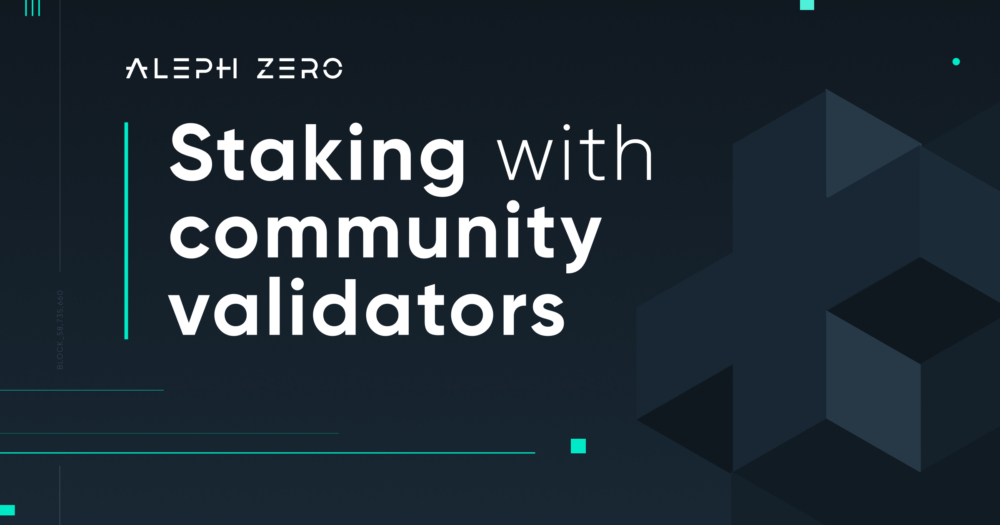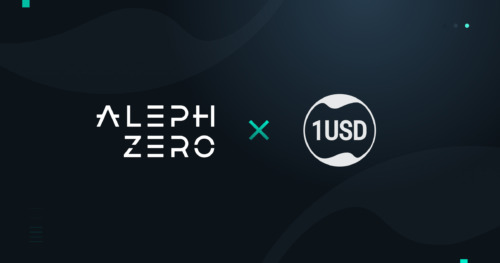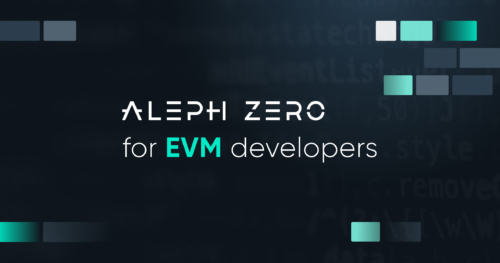Staking with community validators helps secure the Aleph Zero network—and gets you more AZERO rewards. Here’s why.
Feb 26, 2024

Do you know the difference between staking with the Aleph Zero Foundation and community validators? From rewards to security and heightened decentralization—here’s all you need to know about staking.
Key takeaways:
- You get a higher commission when staking with community validators;
- You help decentralize the network when staking with community validators;
- There is no automatic slashing, so you don’t risk losing your coins when staking with community validators; staking with the Foundation or the community is equally secure;
- All nodes, including the Foundation, are subject to Automatic Suspension Mechanism (ASM) — if a validator underperforms, it will be briefly suspended, but not slashed;
- When nominating a validator, you don’t send your coins anywhere; they remain in your wallet/account.
Proof-of-Stake (PoS) blockchains are renowned for their speed, energy efficiency, and minimizing environmental impact. With Proof-of-Stake, users lock their coins as collateral to participate in the network’s consensus – directly as validators, and indirectly as nominators. They keep the platform secure and stable and in return for locking their tokens, they receive the network’s coin as a reward.
As a Proof-of-Stake network, Aleph Zero is guarded by the combined coin collateral staked by its users. This collateral comes from nodes that produce new blocks and other coin holders who participate by expressing their trust in—as a nomination of—certain validators.
Validators vs. nominators: Securing the network and getting more AZERO—together
Validators process transactions, validate blocks, and take part in the AlephBFT consensus to finalize blocks, thus making them irreversible–on Aleph Zero this takes just 0.9 s. To become a validator, you need to have 25,000 AZERO or more and possess the required technical background to run the Aleph Zero node software.
Nominators are users who don’t maintain Aleph Zero nodes directly, but still want to contribute to the network’s security and get staking rewards. They use their stake to nominate validators of their choice.
For assisting in maintaining the decentralized structure of the blockchain and verifying transactions, validators and nominators are rewarded—albeit to different degrees—for providing their respective services.

Staking with the Aleph Zero Foundation or community validators—what’s the difference?
The base rewards for staking are proportional to the staked amount, and the mechanism works the same for validators and nominators. Validators charge a commission from nominators for providing the staking service–that is a fraction of the nominator’s base reward given to the nominated validator.
The Aleph Zero Mainnet has launched in November 2021, with 10 validators operated exclusively by the Aleph Zero Foundation. The staking functionality has been added in March 2022 with a 0% commission. Community validators have been active since December 2022.
To incentivize further decentralization and avoid “commission wars”, the minimal commission had been gradually increased for community validators–this is now set to 5%. At the same time, the commission on Aleph Zero Foundation nodes rose to 12.5%, so that users would be more incentivized to nominate with community validators, decreasing the amount of coins staked to Foundation nodes. This campaign has proven successful as over 57% of total available stake is with community-ran validator nodes at the time of writing.
Still, some users continue to nominate AZF nodes, which prevents them from getting the maximum possible rewards—and prevents the network from becoming even more decentralized.
More decentralization, fewer fees, and more AZERO for you
If you stake with Aleph Zero Foundation validators, you’ll pay a commission fee of 12.5%. Whereas, if you stake with community validators, you could pay as low as 5%.
Aleph Zero now boasts over 160 validators. While ten of these are still being operated by the Aleph Zero Foundation, the remaining 150+ are operated by various community members—from individuals, to professional validator firms, to global corporations. We’d like to stress the importance of staking with community validators and ensuring that stake distribution is as decentralized as possible. After all, while the overall proportion of assets staked to community validators sits at 57.28%, there’s still room for further distribution and decentralization.
What are the risks of staking?
In both cases–community validators and Aleph Zero Foundation–we want to emphasize that you always maintain full custody of your tokens. As in any other Proof-of-Stake network, there’s some risk of slashing and unbonding schedules present–but here’s how it’s handled on Aleph Zero.
Slashing – how does it work?
For now, there is no automatic slashing on the Aleph Zero network. Slashing refers to the penalty that validators must pay for engaging in negative behaviors within the network. These behaviors could include frequent downtime, block proposals that are invalid, or the double signing of blocks. When a validator is slashed, a part of their stake is permanently lost—and consequently—your potential reward as a nominator is lost as well.
Until the on-chain governance is live, slashing is manual and subject to the core team’s assessment. If we suspect a problem with a node—we contact the validator and work together to resolve the issue. This means the risk of slashing is minimal. These mechanics will likely change as the network becomes more and more decentralized, however, it’s important to repeat that at the moment, automatic slashing does not occur.
Doing your own research around which validators to choose from is still advised, but the risk of slashing is minimal at the current state of network’s development.
If there is no slashing, then what? Introducing Automatic Suspension Mechanism
To ensure the best possible performance of the Aleph Zero network, an Automatic Suspension Mechanism (ASM) has been implemented.
If a validator node underperforms, it is temporarily suspended and therefore stops taking part in the network’s consensus. The only risk for nominators staking with that validator is that they won’t be getting rewards for the suspension period.
This is why it is strongly advised to monitor validator performance with tools like azero.live. The tool itself has been built by a community member and further developed with the support of the Ecosystem Funding Program by Aleph Zero Foundation. With azero.live, you can set notifications for underperforming nodes and thanks to that, know immediately when to switch to another validator to continue getting rewards as usual.

Help us decentralize further
A key point to mention is that when staking—with the Aleph Zero Foundation or community validators—you’re not transferring your tokens anywhere, and they remain safe and under your custody in your wallet.
But when you opt to stake with Aleph Zero community validators, you can get more staking rewards, contribute to the further decentralization of the network, and help Aleph Zero grow:
- Get more AZERO rewards: community validators are free to charge less in commission — and this means a higher APR for you. Check out how much more AZERO you could be getting with specific Aleph Zero community validators with this calculator from stakingrewards.com.
- Contribute to the further decentralization and security of the Aleph Zero network: while staking with community validators, you help to decentralize the network more, strengthen security, and further contribute to the ecosystem in general.
- Help Aleph Zero grow: in nominating community validators, you’re taking an active role in supporting the Aleph Zero community. Validators are also heavily involved in creating insightful learning content and supporting other community members—and can help you grow on your own Web3 journey.
So, stake with the community validators, help secure the Aleph Zero network, and get more rewards for doing so!


